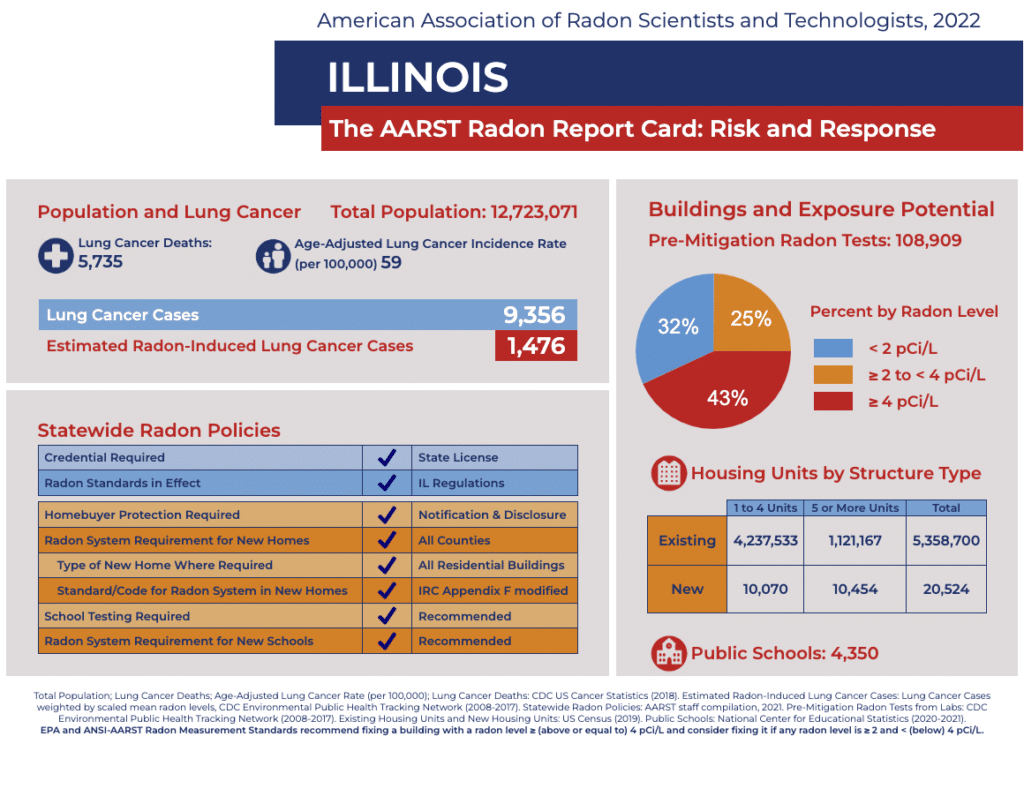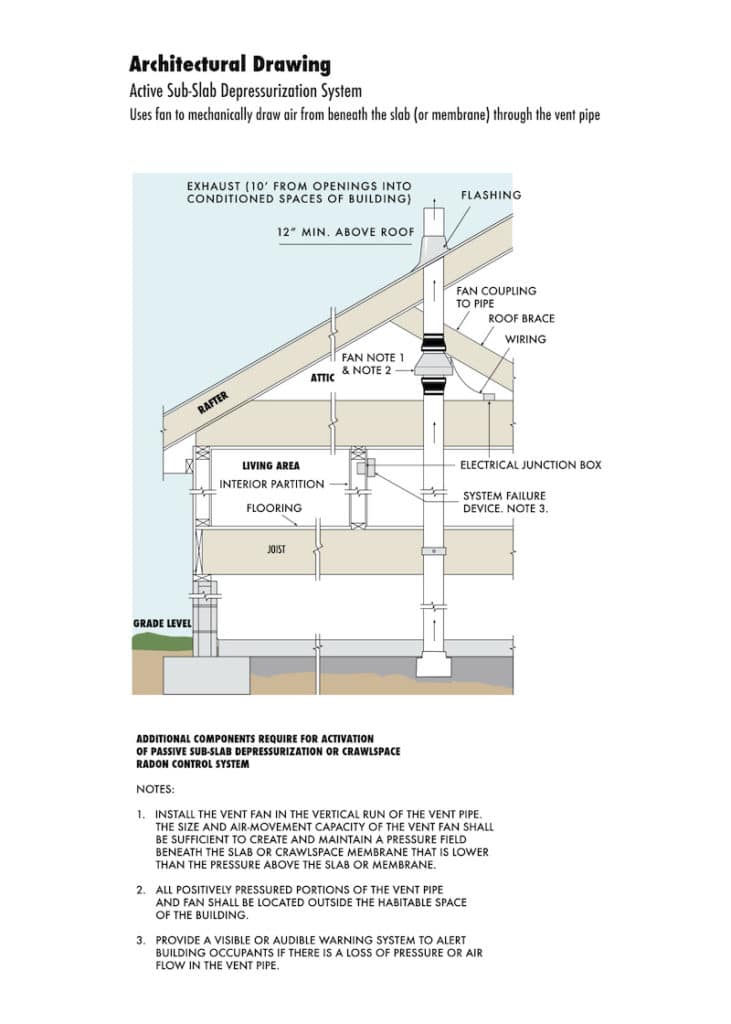As the world learns more about radon, testing becomes more important than ever. Adam Lask of the Lask Inspection Group, LLC is licensed by the State of Illinois (#RNI2021216) to provide Professional Radon Measurement services. Radon is an odorless, colorless, tasteless, radioactive gas which results from the decay of uranium. From radon comes radon decay products that expel alpha particles which may cause lung damage when inhaled. Radon gas migrates from the ground into the home where it remains until it decays.
Health Effects

An estimated 21,000 deaths occur annually as a result of radon inhalation. Specifically, radon has been documented by various organizations around the world as a cause of lung cancer. The action level to mitigate in the United States is a testing result of 4 pCi/L of radon or greater. According to the Environmental Protection Agency (EPA), 4 pCi/L will give an occupant of the home a risk of lung cancer the same as the risk of dying in car crash. Furthermore, if you are a smoker your risk of getting lung cancer paired with a home of 4 pCi/L is about five times the risk of dying in a car crash. This relationship between high levels of radon and lung cancer has shown to be linear. That is, the higher the levels of radon in a home results in the higher risk of getting lung cancer.
Radon Testing In Illinois
According to a study conducted by the Illinois Emergency Management Agency (IEMA), 41 percent of homes tested for radon in Illinois had levels higher than the action level of 4.0 picoCuries per liter (pCi/L)(Illinois Department of Public Health). If a neighbor tested below the action level for radon you should still test your home. Radon levels below ground can vary significantly from house to house. Additionally, every home has different transport mechanisms that may allow radon entry into the home. Furthermore, strict guidelines should be followed and only approved devices should be used to test for radon. This is why the State of Illinois requires measurement professionals be licensed by the Illinois Emergency Management Agency, Division of Nuclear Safety.
Do I Need To Test For Radon?
If you care about the air you breathe in your home then I would suggest testing for radon. Even if you have tested for radon before it may be worth testing again. So the current recommendations are for testing every 2-5 years for radon. There is no safe level of radon in the home. While 4 pCi/L is the action level for mitigation, the goal is to achieve the lowest radon level possible in the home. With current mitigation systems the level of radon in most homes can be reduced to 2 pCi/L. The average indoor level of radon in the United States is 1.3 pCi/L. In addition, Illinois requires radon mitigation contractors to be licensed by the State of Illinois. This therefore helps to ensure systems are installed properly.
Real Estate Testing
Many homes are tested for radon in the transfer of real estate. Home buyers want to know if a home has high levels of radon and if a radon mitigation system needs to be installed. So in some cases, realtors can negotiate the transaction based on the radon results. A short-term test is conducted by a licensed measurement professional using an approved device to determine if mitigation is recommended. If test results are equal to or greater than 4 pCi/L, mitigation is recommended. For example, you can see a drawing of a common mitigation system in a home in the below drawing.

Illinois Radon FAQ’s can be found here through the Illinois Emergency Management Agency.
From the Illinois Radon Awareness Act:
“The Illinois Emergency Management Agency (IEMA) strongly recommends ALL homebuyers have an indoor radon test performed prior to purchase or taking occupancy, and mitigated if elevated levels are found. Elevated radon concentrations can easily be reduced by a qualified, licensed radon mitigator.”
Our Service Area
We serve Rockford, IL and other Illinois cities such as Loves Park, Machesney Park, Chicago, Naperville, Aurora, Geneva, Dekalb, Sycamore, Elgin, Lake Zurich, Arlington Heights, Crystal Lake, and other Chicago suburbs.
